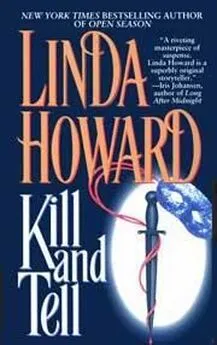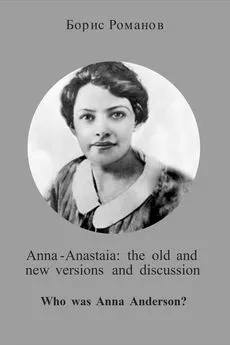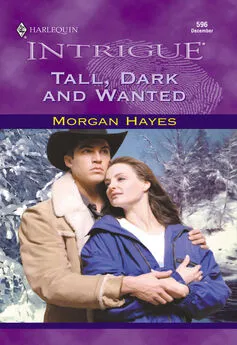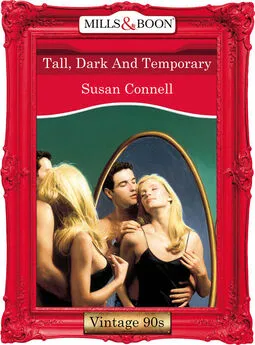Linda Howard - Kill and Tell
- Название:Kill and Tell
- Автор:
- Жанр:
- Издательство:Pocket Books
- Год:1999
- ISBN:9780671021887
- Рейтинг:
- Избранное:Добавить в избранное
-
Отзывы:
-
Ваша оценка:
Linda Howard - Kill and Tell краткое содержание
Still reeling from her mother's recent death, Karen Whitlaw is stunned when she receives a package containing a mysterious notebook from her estranged father. She has barely seen him since his return from the Vietnam War over twenty years ago and doesn't know what he could have to share with her now. She puts the notebook away and forgets about it until she receives a shocking phone call. Her father has been murdered on the gritty streets of New Orleans. At first, homicide detective Marc Chastain considers the murder nothing more than street violence against a homeless man, and Karen just another woman who couldn't take the time to care for her father. But something about the crime just doesn't add up, including the beautiful Karen Whitlaw. Far from the cold woman he expected, Karen is warm and passionate. She is also in serious danger. Karen is shocked by her immediate and unwelcome attraction to the charming, smooth-voiced detective. But when her home is burglarized and "accidents" begin to happen, she turns to him for help. Together they unravel a disturbing story of politics, power, and murder -- and face a killer who will stop at nothing to get his hands on her father's secrets.
Kill and Tell - читать онлайн бесплатно полную версию (весь текст целиком)
Интервал:
Закладка:
She saw herself reach out, the movement involuntary, as if her hand didn't belong to her. Her fingers were trembling. Slowly, she touched the ring, tracing the circle with one fingertip, then withdrew her hand to rest it once again in her lap.
Detective Chastain took her hand in his, his touch gentle as he opened her hand and placed the ring on her palm, then folded her fingers over it. The ring was warm, his hand even warmer. "He cared," he said.
"I don't know why he left, but he didn't stop caring."
She couldn't look up at him. Instead, she stared at their hands, his hard and strong, tanned, much bigger than hers. His clasp was light, as if he were aware of his strength, as many men were not, and took care not to hurt her inadvertently.
Desperately, she struggled to hang on to her control, but his nearness and understanding undermined her. And he seemed to understand that, too, because he released her hand and stood, returning to his seat behind the battered desk.
"Thank you," she said, almost inaudibly. His distance was a relief, yet she found herself yearning for his support.
"You're welcome," he said, and left it at that.
"The rest of his things… are just clothes?"
"Yes. There's a list."
"At least I'll know what size suit to buy for him," she said, though she cringed at the idea of going through the shabby garments looking for tags. It was too much, too soon.
Detective Chastain paused a moment, watching her, then said quietly, "Forty-four long." She swallowed and nodded, looking down at her hands. She had to ask him something, just to be certain, and though the answer would be difficult for a cop, she somehow knew he would be honest with her. "Detective…"
"What?" he asked gently after a moment, when she didn't continue. She raised her eyes to him, squarely meeting his gaze. "Are—are you still working on the case?" He paused, then said, "No."
Karen flinched, though it was exactly what she had expected. He squatted down in front of her again and took her hand in his, rubbing his thumb across her knuckles. The slight roughness of his callused skin scraped her, a warmly masculine sensation.
"I'm sorry," he murmured.
"I understand," she said, though with difficulty. "You have to put your effort where it will do the most good. It's the same in an emergency department."
"Reality's a bitch."
His tough sympathy, his honesty, meant more to her than if he had mouthed all the right platitudes, if he had tried to soothe her with well-meant lies. She squeezed his hand, then straightened her shoulders. "I have a lot to do today, so I'll get out of your way." He moved back, giving her room to stand. "Thank you," she said as she left.
Marc sighed as Karen left his office, her face colorless but calm. His chest felt tight. Damn it, her father had been murdered, and he couldn't do anything about it. As soon as he had gotten an ID on the body, the word had come down to move on to a more productive case. There wasn't any percentage in trying to solve a homeless murder, not that he had jack shit to go on anyway. It was just so damn frustrating. God, he had wanted to hold her, just pick her up and hold her on his lap and let her know she didn't
have to do this alone. But he hadn't, both because it was too soon and because to do so would have shattered her hard-won calm.
She had probably been acting calm and responsible since she was a child, forcing herself to become a little adult when she should have been carefree, playing with dolls and skipping rope. He saw it all the time: when there was only one parent left, and the child saw that parent struggling, the child would in effect become the parent, taking on responsibilities far beyond the child's age. She had probably taken over the housekeeping chores, made sure her tired mother had food waiting for her when she got home from work, done everything she could to lighten the load.
Karen had even gone into nursing, taking on even more responsibility. It was telling that she had then become her mother's sole support, completing the role reversal. She had probably called her mother by her given name rather than "Mom," at least part of the time, for the little girl had become the mother, and the mother had become the dependent. It was obvious she had adored her mother and so had been that much more protective.
She had spent her life taking care of others, and now he wanted to take care of her, wanted it with a fierceness that shook him. He was normally protective of women, but he had never before felt like this. Something inside him had altered, shifted, and he couldn't regret the change. Did she have any idea how valiant she was? Her dry comment the day before about women being shallow for having trouble committing to a cop because of the danger factor had been amusing, but she had meant it. Karen Whitlaw wouldn't walk away from a commitment because she was scared; she would be there, through the bad times as well as the good.
Whenever he had been in a relationship, Marc had kept his work out of it. Being called away on a case was unavoidable, but he hadn't brought the details home. He had always shielded his lady friends from the ugliness he saw, partly because of his own protective nature but also because he had never thought they would understand or be able to accept the part of his nature that made it possible for him to deal with the things he did. Perhaps he had underestimated the ladies in his life, but he had seen a lot of relationships destroyed by the pressures of the job, and he hadn't wanted to take the chance. He knew Karen wouldn't flinch. She would brace her shoulders and lift her chin, as he had seen her do several times when the pain and stress would almost overwhelm her. Most people would have broken down under the emotional burden she was carrying, but she had faced the situation squarely and controlled her tears until she was alone.
He knew she had cried; her eyelids were swollen. She had cried, and he hadn't been there to hold her. He would be, he thought fiercely. From now on, he would be.
Chapter 9
«^»
The day was overcast, with rain threatening any minute, and so muggy Karen felt as if she would melt. Sweat gathered in a pool between her breasts, trickled down her sides. Her dress was thin and short-sleeved but still black; she could feel the fabric absorbing the heat. She concentrated on her physical misery and on the distant sullen rumble of thunder. She thought about how lush the grass was,
listened to the birds singing, and let herself be annoyed because her heels kept sinking into the soft black dirt. She'd never before seen dirt so black, and she marveled at its richness. She looked at the massive trees, the flowers. This small country cemetery was prettier and more peaceful than the large, manicured "garden of rest" where Jeanette was buried. Perhaps she should move her mother down here, rather than have Dexter taken Her stomach clenched. She had tried so hard not to think about what was happening, but her wayward thoughts had led her to the funeral anyway. She didn't want to think about the man in the casket. Dexter Whitlaw. Her father. Whatever his failings, whatever devils had driven him, at this moment she admitted that her memories of him weren't all bad. There had been a few times when he sat on the floor and played dolls with her, folding his long legs as if he didn't even notice his cramped position, listening with apparent raptness as she spun elaborate stories about what the dolls were doing. Usually, they were sick, and she was taking care of them, an early manifestation of her nursing tendencies. And a couple of times, Dexter had taken her with him on walks in the woods and showed her how to hide in a bush and sit very still so that even the squirrels and the birds forgot they were there. Did those few bright moments outweigh a lifetime of darkness? Was she supposed to remember only them and forget the nights when her mother sobbed into her pillow, longing for a man who wasn't there?
What a waste of life, both Jeanette's and Dexter's. Regret swelled in her chest, suffocating her, or maybe it was just this damnable humidity making it impossible for her to breathe. It couldn't be regret; why should she cry for a man who had never given her a second thought, who bothered to call or visit only when he needed something? And yet he had kept his wedding ring, sewed it into his cuff to keep it safe. It had been important to him, as Detective Chastain had pointed out. Whether it was the life the ring represented, the normal life he had walked away from, or the people in that life, she couldn't begin to imagine.
She wouldn't cry for him. She refused to. But the outline of the casket was blurred, the minister's words were nothing more than background noise, and the pressure in her chest was so great she could barely contain it.
The trees stirred and rattled, breathing. A surprisingly cool gust of wind hit the backs of her legs, breathed down her neck. A chill rippled down her spine. The sensation was refreshing, though, and she sighed as the sweat evaporated on her body. She was grateful for the reprieve from the heat, even when a fine mist of rain closely followed the wind.
In only moments, she went from overheated to downright chilly, as the wind picked up and the rain began to pelt down. Detective Chastain opened an umbrella and held it over their heads, moving closer so they were both sheltered. She didn't know what she would have done without his assistance these past two days, she thought numbly. He had done more than walk her through the necessary procedures, much more; he had stepped in and taken care of arrangements, cut through red tape, smoothed over glitches before they became real obstacles. He had even remembered the flowers for the casket and helped her arrange for them.
She couldn't think why he had done it. She was a commonsense person, but she was beginning to think she had imagined his dislike the first time they met, because not even a glimmer of hostility had shown since then. Maybe fatigue and shock had made her hallucinate. Still, Chastain had gone above and beyond duty, even if she had been mistaken in her initial impression of him. Maybe this was an example of the courtesy toward women for which Southern men were so famous, but he had gone a great deal farther than opening doors for her or standing when she entered the room.
Yes, that was it. Think about the detective, or about regional differences in general; think about anything but the fact that the minister was pressing her hand and murmuring condolences, and the funeral director was waiting for her to leave so they could lower the casket into the grave and begin shoveling dirt over it. The grave was even disguised by a green felt carpet, as if the sight of it would be too much for the bereaved.
But she couldn't leave. She couldn't walk away from Dexter now, not in his last moment above ground. He deserved to have someone there for him, someone whose memory would record these details, so that he wouldn't vanish without a trace. Whatever his failings, he was her father, forever linked to her through shared genes.
"Go ahead," she said hoarsely. It was an effort to speak. Her arms roughened with chill bumps, and she hugged them against the bite of the wind, wondering where the heat had gone. The rain drummed down on the umbrella, spattered her legs and her back, and a shiver seized her. She saw the funeral director glance at Detective Chastain, as if the final decision was his. Perhaps it was. If he chose to drag her away from the graveside, she didn't know if she would be able to protest, or to resist. If she tried to argue, the tenuous control she was maintaining would shatter, and she would collapse into a sobbing heap. A sobbing heap was not a good position from which to assert authority. But he gave a brief nod, and she tried to tell him with her eyes how grateful she was, not just for this but for everything. The funeral director turned aside with a quiet word to the waiting men. Chains creaked, and the casket was slowly lowered into the grave.
Читать дальшеИнтервал:
Закладка:










